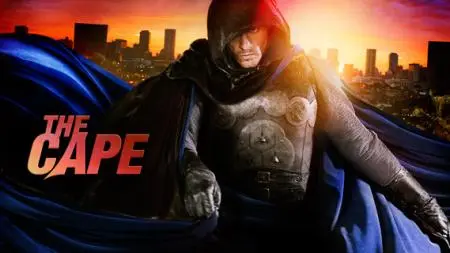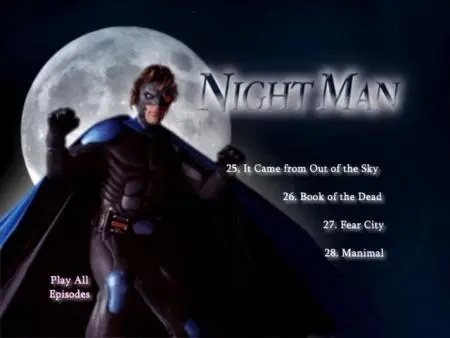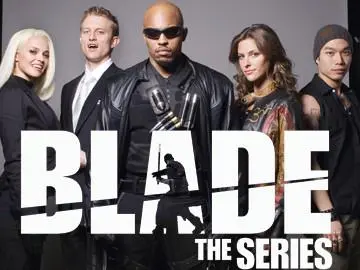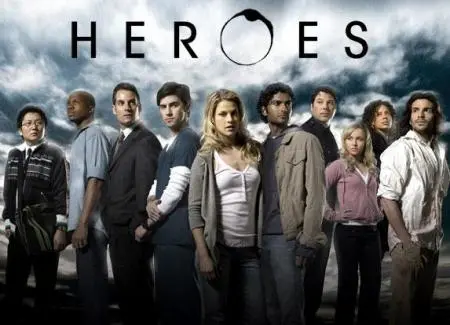It wasn’t always so hard to do superheroes on TV. Back in the early days, when expectations were far lower, there were a few successes like Adventures of Superman, Wonder Woman and The Incredible Hulk. Classics of their time, to be sure, but they haven’t aged well. Although superheroes have ruled at the box office for the better part of a decade, every attempt to duplicate that success on TV has fallen hilariously flat. Below, you will find five of the worst offenders. A few ground rules—cartoons have been excluded, since superheroes usually do pretty well in that format. I’m also not going to bother with terrible made-for-TV movies (Fantastic Four, Doctor Strange) or abandoned pilots that failed to produce a series (Aquaman, the more recent Wonder Woman). And Smallville doesn't count for anything since it went out of its way to avoid superheroes. That being said, the most pathetic attempt would have to be…
Mutant X (2001-2004)
The Premise:
The world is getting stranger. Thanks to experiments in genetic engineering, there are now people with powers like telepathy and super strength. People with the ability to throw lightning and walk through walls. Of course there is a secret government agency dedicated to hunting them down and killing the ones they can’t turn into living weapons. Our heroes are part of a resistance movement called Mutant X. It is headquartered in a hidden mountain base, and led by a wise older scientist who uses his super advanced computer to track down and recruit these “new mutants” all over the world.
The Fail:
If you think that sounds a lot like the plot of X-Men, well, Fox thought so too. See, they owned the exclusive rights to develop that property, and they thought Marvel was putting out a cheap knockoff to capitalize on the very successful X-Men movie Fox had just made, which they absolutely, unquestionably were. But that didn’t stop Marvel from counter-suing just to say “Nu-uh!” The two companies eventually resolved their dispute out of court, but I think someone at Fox just watched a few episodes and realized the show was nothing to worry about. If Stan Lee had written daytime soaps instead of comic books, the result would be Mutant X: a bunch of blank-faced actors spouting technobabble as they hurl bad special effects at each other and perform lots of slow motion wire-fu. Fully half of every episode is in slow motion. They fight, flip, glare intensely, walk into rooms and step out of sports cars at 10 frames per second. Somehow they stayed on the air for three seasons, no doubt coasting on the viewership of those too confused to realize it wasn’t an X-Men TV show, but the fourth season was unceremoniously canceled when the production company went under. Mutant X ended on a cliffhanger, and now, all these years later, there is still nobody who cares.
The Cape (2011)
The Premise:
Palm City detective Vince Faraday has been framed for murder and presumed dead in a massive train explosion. Determined to clear his name and bring the villain responsible to justice, he spends a long night of training montages under the sage, gravelly-voiced guidance of Keith David. Vince decides to become a superhero, one who fights crime and corruption using no weapons other than a trick cape. After one night of getting his ass kicked in costume, Vince becomes certain that this flexible fashion accessory is the only way to get his freedom and his family back. As the Cape, he battles against an international cabal of ethnic stereotypes, I mean assassins. Like the dirty Frenchman who poses as a chef to slip his targets poisoned gourmet meals, or the drunken Russian escape artist who would literally kill for that cape.
The Fail:
This show might’ve actually been interesting if it were about one man’s descent into obsessive delusion, putting on a costume and getting pummeled as some twisted form of self-punishment. But no, the writers treat the cape with the utmost seriousness. Characters throughout the show talk of the cape as if it is some ancient weapon of unholy power that corrupts the souls of all who wield it. Here’s the thing—that cape isn’t even magic. It’s just an old stage illusionist’s cape, and it’s not really all that useful. Made from pure spider silk, which looks a lot like bad CGI, the cape is capable of such amazing feats as grabbing things that are slightly out of reach, towel-whipping bad guys like sixth-graders, and flapping heroically in the wind. This show is a graveyard of wasted talent spewing terrible dialogue, but at times it does manage to transcend all this to become so terrible you can’t help but laugh.
Night Man (1997-1999)
The Premise:
San Francisco saxophone player Johnny Domino is a musician by night and superhero by later at night. Called Night Man. Because he fights crime at night. After being struck by lightning in a freak cable car accident Johnny can no longer sleep, but he gains the ability to hear evil thoughts. With a power that obvious, how can he not fight crime? For two seasons Night Man valiantly defeated the monster of the week, ranging from an undead life-sucking Egyptian queen to a sociopathic billionaire brainwashing people through the internet. No villainous scheme was too stupid for him to foil.
The Fail:
It was only loosely based on its source material. In the comic, Johnny rides a motorcycle, wears a Kevlar vest, and carries a gun. In the show, Johnny battles evil in a bulletproof combat suit that can enhance his strength, turn invisible, fly, and even shoot lasers from its eyes. Now if you’re wondering how a marginally employed saxophonist came to possess such an advanced piece of military grade hardware, don’t worry—the show will never address it in any way. Unlike the cape, Night Man’s suit is actually one of the most powerful weapons ever shown on the show, so it seems odd that no one, not even the villains being routinely defeated by this amazing technological marvel, ever comments on it. And that’s pretty much indicative of the level the writing’s at for this series. It’s one of those rare cases where the comic book was actually more realistic than the television show.
Blade: The Series (2006)
The Premise:
The series picks up where the trilogy of films left off. After Blade destroyed most of the rulers of the vampire nation, the House of Cthon rose to fill the void at the top. The heads of the house become targets of the hunter as he learns that they are working on an experimental serum that would immunize vampires against garlic, silver and sunlight. To aid in his investigation, Blade enlists Krista Starr, a recently turned victim, to be his mole. As Krista gets in deeper, we get some disturbing insights into vampire culture.
The Fail:
Sadly, the show had the production values of a fan film, making their carefully choreographed fight scenes look like a bunch of kids playing pretend in the backyard. The lead was replaced with rapper/actor Kirk “Sticky Fingaz” Jones doing his best Wesley Snipes impression, which is only good enough to remind you that you are not watching Wesley Snipes. It wasn't entirely his fault, as the writers refused to give Blade any scenes of character development, and he only spoke in action movie one-liners. The political intrigue and betrayal between the great vampire houses was actually very well done, and felt like scenes cut from a completely different show. Maybe if it had aired post-Twilight it might have earned enough of a cult following to get another season with a bigger budget, but that’s probably just wishful thinking.
Heroes (2006-2010)
The Premise:
People all over the world are beginning to display strange new abilities like flying, telepathy, accelerated healing, and even time travel. As you should expect by now, there is a clandestine arm of the government dedicated to keeping their existence hidden from the public and controlling the more dangerous ones. A precognitive comic book artist prophesies a dark future on the horizon if the cheerleader is not saved. There is also the shadowy menace of Sylar, who is killing these special individuals and stealing their powers by a method heavily implied to be eating brains. Heroes featured a large cast of characters, spending a lot of time following their individual arcs until it all wove together to craft an epic superhero struggle, which is the closest television has ever come to comic book storytelling.
The Fail:
Heroes is the biggest disappointment on this list because they managed to produce one of the best first seasons in the history of television. Not only did they finally have movie-quality special effects, but the story was well-plotted and dynamically paced. Characters were complex and unpredictable, often defying expectations, and the dialogue was snappy and clever. Then, in the second season the wheels came off and they never got them back on. Too many new and extraneous characters were introduced instead of focusing on the ones audiences had grown to know and love. The show became obsessed with revealing its own convoluted mythology through clunky expositional dialogue, and the increasingly ridiculous plots came to rely more and more on people acting wildly out of character or just downright stupid. By the end of the fourth season, Heroes was just Mutant X with a better budget.
Arrow & Agents of SHIELD
Of course, a discussion of television’s failed superhero franchises would not be complete without an examination of whether or not the new contenders are fated to join them. Arrow, despite getting off to a slow start, has persisted on the strength of its action scenes. While it manages to remain exciting and entertaining, the writers can’t seem to decide if this is a serious, realistic vigilante thriller, or a wacky cartoonish melodrama. Marvel’s Agents of SHIELD, however, has yet to show any actual superheroes other than brief celebrity cameos, though we remain hopeful. So far they’re playing it safe, investigating a monster/phenomenon of the week, and relying on their charming cast, led by fan fave Agent Coulson, to hold the viewers’ attention. Their approach to government agents pursuing the paranormal is more Warehouse 13 than X-Files, and while it is amusing that when SHIELD agents make comic book references they are talking about real people, there is nothing else uniquely Marvel about the show to set it apart in a very well-trafficked genre. Hopefully they’ve learned from the past and are just getting warmed up, not prolonging the inevitable.
What do you think? Are there other shows that failed harder? Or do you have a reason why one of the above is really just a misunderstood masterpiece? Let me know in the comments.
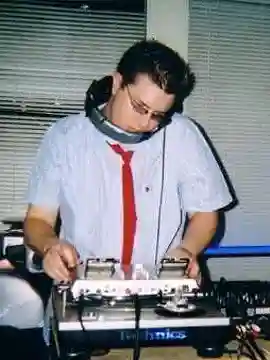
About the author
BH Shepherd is a writer and a DJ from Texas. He graduated from Skidmore College in 2005 with degrees in English and Demonology after writing a thesis about Doctor Doom. A hardcore sci-fi geek, noir junkie and comic book prophet, BH Shepherd has spent a lot of time studying things that don’t exist. He currently resides in Austin, where he is working on The Greatest Novel Ever.
